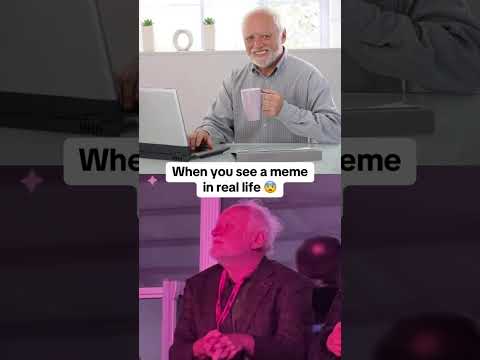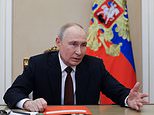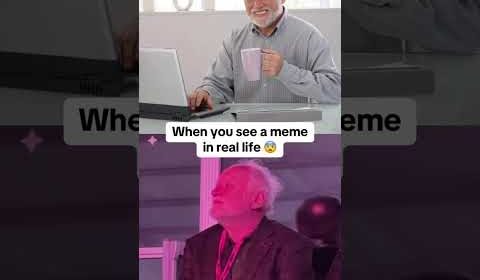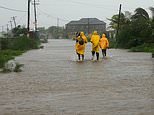Fidel Castro and Organized Crime
⭐️⭐️⭐️⭐️⭐️
It is said that Ernesto “Che” Guevara and Fidel Castro agreed in the spring of 1961 that the best way to destroy the United States was by turning its youth into drug addicts.
The criminal actions that have taken place in Cuba over the past 66 years—many of them with serious repercussions in foreign countries—cannot be discussed without attributing exclusive responsibility to Fidel Castro.
If he was not the first, there is no doubt that the Cuban caudillo stands at the forefront of those criminals who linked crime with political action.
Fidel Castro was never an idealist, a man with a defined social vision, but merely a subject who craved absolute power, leaving no room for dissent—just as happens within outlaw groups.
Long before taking power, Castro had been linked to criminal groups at the University of Havana and had participated in more than one murder.
His inclinations were already well defined, which is why he chose the path of violence to achieve his most nefarious purposes.
According to people who knew and interacted with him, his intellect was focused solely on controlling and manipulating those around him while trying to create events that favored him.
They also claim that he always suffered from acute messianism and believed himself chosen to carry out transcendent and unique missions.
Former colleagues point out that he longed for power at all costs and that his participation in the small but powerful mafia groups of the University of Havana was the means that allowed him to climb positions and gain prestige in an environment characterized by violence and the indifference of the large student mass, which only wanted to finish their studies.
Throughout history, we have found numerous politicians who, in their public actions, were more lethal than the most prolific serial killers, but Fidel Castro, unlike them, was a criminal before being a politician.
When Castro assumed control of the Cuban government on January 1, 1959, it was the first time the country was ruled by a criminal turned politician. We had suffered leaders who were politicians with criminal appetites, but never a criminal who used politics as a tool to govern the country.
The breakdown of all republican institutions—particularly Justice, Public Security, and the Armed Forces—and the appointment of unconditional officials at the head of those bodies who obeyed the “chief’s” orders rather than the laws previously established, lead us to consider those individuals as part of the founding core of the criminal apparatus that, associated with international crime organizations, has directed the destinies of Cuba and significant sectors of the hemisphere in recent decades.
Castro resorted to organized violence to seize power in Cuba and developed that successful strategy throughout the American hemisphere for decades, beginning in the very year of the insurrectional victory.
The Castroite subversion, wrapped in ideological proposals to promote structural political changes, was another disguise of organized crime that Fidel promoted. The subversives, more than engaging in military confrontations, practiced kidnapping in search of ransom payments, ending up involved in international drug trafficking in pursuit of wealth and power.
The Cuba of the Castro brothers presents a criminal record that includes acts of terrorism, espionage, association with kidnappers, and drug trafficking—to mention only the most relevant.
Castroite totalitarianism has spied on everyone and everything without exception. It is true that the United States has been its main target, but through its intelligence services—including the now-defunct Department of the Americas, the Ministry of Foreign Affairs, and the Cuban Institute of Friendship with the Peoples (ICAP)—its spies are everywhere, since the resources coming from organized crime available to the system are never lacking for these activities.
In Cuba, members of the Uruguayan urban terrorist group Tupamaros were supplied and trained; they kidnapped and murdered numerous people. It also provided assistance to terrorist factions from other countries such as Nicaragua and Venezuela, where, after kidnapping the physician Julio Iribarren Borges, the FALN terrorists murdered him—a crime made known in Havana by Fidel Castro himself.


The links with terrorism extended throughout the continent, including the United States, but without a doubt, the most relevant were those maintained with the Colombian insurgent groups, particularly with the M-19, in which the current president of Colombia, Gustavo Petro, was a member. This faction received political support, military training, and weapons, in such a public show of backing that Colombia broke diplomatic relations with Cuba in the face of such an affront.
Moreover, there is evidence that the M-19 leaders maintained communication with Fidel Castro and that he decided to accept in Havana the guerrillas who sought asylum after taking over the Embassy of the Dominican Republic in the Colombian capital.
The supposedly insurgent groups, strongly associated with Cuba, eventually turned to the practice of kidnappings. Many were the people kidnapped by the Colombian insurgents, just as Raúl Castro had done in 1958 in the Sierra Maestra—an act in which Fidel was not a stranger—nor was he when President César Gaviria, in a shameful gesture, asked the Cuban dictator for help to secure the release of his brother Juan Carlos Gaviria, who had been kidnapped in 1996 by an irregular group in the city of Pereira.


However, one of the criminal activities in which totalitarianism has been most successful is drug trafficking, so much so that there are two urban legends difficult to refute. They say that Ernesto “Che” Guevara and Fidel Castro agreed in the spring of 1961 that the best way to destroy the United States was by turning its youth into drug addicts, and that the infamous Department of the Americas, directed by the ineffable Manuel Piñeiro, “Red Beard,” when short of money, directly organized networks to distribute narcotics.
The Ochoa case was the tip of the iceberg of drug trafficking within Castroite totalitarianism—a multiple crime that sought to conceal the close relationship between the Cuban regime and drug trafficking—as testified in an interview with Radio Martí by the convict Carlos Lehder: “I was invited by the communist government of Cuba, by the Castro dictatorship, to Cuba, to establish there a conduit, a line, a cocaine trafficking route to the United States.”
A Cuban ambassador to Colombia, Fernando Ravelo, a senior official of the Department of the Americas, was involved in the shipment of boats from Colombia loaded with drugs to Cuba.


The totalitarianism of the Castro brothers has also directed drug cartels, as Nicolás Maduro currently does with the Cartel of the Suns. The governments of the United States simply lacked the will to prosecute Fidel and Raúl Castro as criminals, just as President Donald Trump is doing today.
Pedro Corzo, Senior Fellow, MSI²
READ MORE :


Originally published by the Miami Strategic Intelligence Institute, a conservative and nonpartisan think tank specializing in policy research, strategic intelligence, and consulting. The views expressed are those of the author and do not necessarily reflect the official position of the Institute. For more information, visit www.miastrategicintel.com
The views expressed in this article are those of the author and do not necessarily represent the official position of Gateway Hispanic.
About The Author
⭐️Singer/Songwriter/Voice Talent/Actor/Media Personality⭐️
Born in Syracuse, NY. He holds a bachelor of science degree in communication from Florida Institute of Technology with specialization in technical writing, business, public relations, marketing, media, promotion, and aerospace engineering.
⭐️ Las Vegas Entertainer ⭐️ MTV uplaya Platinum Auddy Award Winner ⭐️ Southeastern FTTF Talent Champion ⭐️ Movies & TV ⭐️ Listed in ‘Who’s Who’ publication ⭐️ Voted ‘MOST MARKETABLE’: Sonic Records ⭐️ U.S. Veteran ⭐️
















































